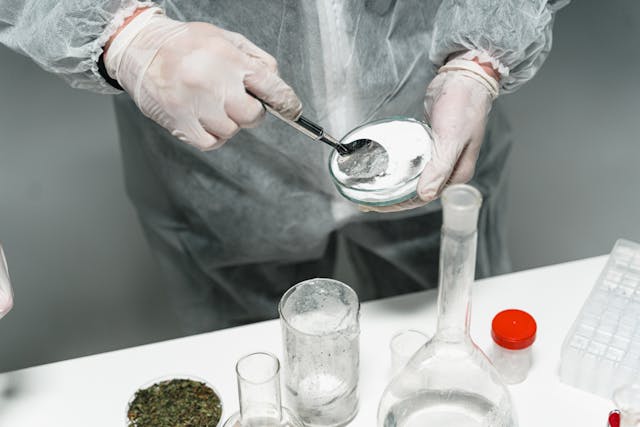Drug testing has become an essential tool in various fields, from workplace safety to sports, and even in clinical settings. Beyond its immediate purposes, drug testing can also reveal the broader health risks associated with long-term drug use. Chronic use of drugs, whether prescription or illicit, can lead to significant health complications, many of which can be detected early through regular drug testing. This article explores the health risks of long-term drug use and how drug testing can play a crucial role in identifying these risks.
Understanding Drug Testing And Its Importance
Drug testing involves analyzing biological samples such as urine, blood, saliva, hair, or sweat to detect the presence of drugs or their metabolites. Different testing methods offer varying levels of accuracy and detection windows. For instance, blood tests can provide immediate results about drug presence, while hair tests can show drug use over several months.
The importance of drug testing extends beyond its immediate results. It serves as a preventive measure, identifying individuals at risk and helping in the early intervention and treatment of substance abuse. Regular drug testing in clinical settings, for instance, can monitor patients on long-term prescription medications, ensuring they are not developing dependency or experiencing adverse effects.
Health Risks Associated with Long-term Drug Use
Cardiovascular Problems
Long-term use of stimulants such as cocaine, methamphetamine, and certain prescription medications can lead to severe cardiovascular issues. These drugs increase heart rate and blood pressure, which over time can cause heart attacks, strokes, and chronic hypertension. Drug testing can help detect the use of these substances before significant damage occurs, allowing for timely medical intervention.
Liver Damage
Substances such as alcohol, acetaminophen, and certain prescription medications can cause liver damage when used excessively over long periods. The liver is responsible for metabolizing these substances, and prolonged exposure can lead to liver inflammation, cirrhosis, or liver failure. Regular drug testing, especially through blood tests, can monitor liver enzyme levels, indicating potential liver damage early on.
Respiratory Issues
Chronic use of drugs like tobacco, marijuana, and inhalants can lead to respiratory problems. These can range from chronic bronchitis and asthma to more severe conditions like chronic obstructive pulmonary disease (COPD) and lung cancer. Drug testing can identify users at risk, allowing healthcare providers to recommend smoking cessation programs and other interventions.
Neurological and Cognitive Impairments
Long-term use of drugs, including alcohol, benzodiazepines, and opioids, can lead to significant neurological and cognitive impairments. These substances can affect brain function, leading to memory loss, impaired judgment, and even permanent brain damage. Early detection through drug testing can prompt necessary interventions, such as cognitive therapy and rehabilitation programs.
Kidney Damage
Drugs like heroin, cocaine, and non-steroidal anti-inflammatory drugs (NSAIDs) can cause kidney damage with prolonged use. This can lead to chronic kidney disease or acute kidney failure. Routine drug testing, particularly through urine analysis, can help detect early signs of kidney dysfunction, allowing for prompt medical response.
Mental Health Disorders
Substance abuse is often closely linked with mental health disorders such as depression, anxiety, and psychosis. Long-term drug use can exacerbate these conditions, making treatment more challenging. Drug testing can identify substance abuse early, enabling mental health professionals to tailor treatment plans that address both the substance use and the mental health disorder.
The Role of Drug Testing In Preventive Healthcare
Drug testing is not just about identifying current drug use; it also serves as a critical component of preventive healthcare. By detecting substances early, healthcare providers can address potential health risks before they develop into serious conditions. For example, quality urine devices can be used in routine check-ups to screen for a range of substances, providing an effective means of monitoring patients’ drug use over time.
Early detection through drug testing can lead to:
Early Intervention: Identifying drug use early allows for timely medical and psychological interventions, reducing the risk of developing severe health problems.
Personalized Treatment Plans: Understanding a patient’s drug use history can help healthcare providers develop personalized treatment plans that address specific health risks.
Monitoring Progress: Regular drug testing can help track a patient’s progress in overcoming substance abuse, ensuring they remain on the path to recovery.
Preventing Relapse: Continuous monitoring through drug testing can help prevent relapse by providing immediate feedback and support to individuals in recovery.
Conclusion
Long-term drug use poses significant health risks, ranging from cardiovascular and respiratory issues to neurological impairments and mental health disorders. Drug testing plays a crucial role in detecting these risks early, allowing for timely intervention and treatment. By integrating regular drug testing into preventive healthcare, we can better manage and mitigate the health impacts of long-term drug use, ultimately improving patient outcomes and quality of life.
Investing in reliable drug testing methods and ensuring their regular use in clinical settings can significantly enhance our ability to detect and address the health risks associated with long-term drug use. Through continuous monitoring and early intervention, we can make strides in reducing the prevalence and impact of substance abuse on individual and public health.
Author Bio
 I’m John Llanasas a highly- skilled well experienced professional article writer, writing informative and engaging articles covering topics mostly related to health, home improvement, productivity, technology, education, and travel. By doing a lot of research I can produce productive content full of information. I am a master of creative writing, web writing, Article rewriting, and proofreading. Hard work is the key to my success. That’s why I am very punctual and dedicated to my work. Creativity is an art for me that’s why plagiarism is not appreciated at all.
I’m John Llanasas a highly- skilled well experienced professional article writer, writing informative and engaging articles covering topics mostly related to health, home improvement, productivity, technology, education, and travel. By doing a lot of research I can produce productive content full of information. I am a master of creative writing, web writing, Article rewriting, and proofreading. Hard work is the key to my success. That’s why I am very punctual and dedicated to my work. Creativity is an art for me that’s why plagiarism is not appreciated at all.
